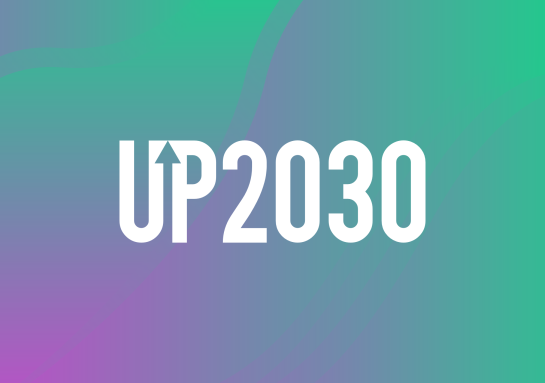
Acronym: UP2030
Title: Urban Planning and design ready for 2030
Call: HORIZON-MISS-2021-CIT-02 submitted for HORIZON-MISS-2021-CIT-02 / 26 Apr 2022
EU nr: 101096405
Period: 36 months, 1/1/2023-31/12/2025
Total Budget : € 11,081,846
VUB Budget: €331,375
Contact at imec-SMIT-VUB research group:
Prof. Dr. Ilse Marien, Unit Lead, Ilse.Marien@vub.be
Dr. Dorottya Varga, Senior Researcher, Dorottya.Varga@vub.be
Lawrence Van den Bogaert, PhD Candidate, Lawrence.Van.Den.Bogaert@vub.be
We met Ilse and asked her What is UP2030 about and Why is it important for VUB?
What is UP2030 about
Ilse: “Addressing the neutrality challenge-focussing on emission reduction targets- is considering the complexity of urban interactions more than just a technological fix. Therefore, UP2030 aims at looking into renewed urban planning and design practices and policies coupled with social innovation. So, what do you mean by that? This means that cities are granted to play a pivotal role and redirect interactions towards desired outcomes. Cities are rebuilding the urban-shape through connectedness for improved access to neighbourhood services and workplaces, and through the efficient integration of infrastructure in compact neighbourhoods. The key ambition of the cities lies in taking better decisions to reduce emissions. As an example, promoting active mobility (e.g., superblocks, healthy streets, infrastructure for walkability and cycling) should be a cornerstone of strategies to meet net zero carbon targets. UP2030 will also identify high mitigation impact renovation in the existing urban fabric (i.e., also addressing sprawling) as fundamental to reducing emissions, while also making cities more liveable improving public health and quality of urban life. “
Why is UP2030 important for VUB?
Ilse: “The envisaged transition cannot be delivered by local authorities on their own and thus citizen engagement is crucial to success. Significant engagement innovation already exists (i.e., extreme citizen science, participatory mapping, climate champion programme), but the adoption of such techniques is far from mainstreamed in how cities exercise urban planning and design.
Decisions are still taken mostly through top-down; even in those cases where engagement is well intentioned, the vast data and input from participatory exercises might not lead to a structured response to the citizens/challenge. This, in turn can lead to citizen disillusionment and disengagement. To address this, there is a need for planning and executing the full life cycle of participatory processes. VUB’s experience in citizen science and citizen engagement for conservation actions (e.g., SOCIO-BEE, Urban ReLeaf, CLIMAS) will help engage citizens bottom-up, while the Climate Stories project will be exploited to create story-maps, critical for stakeholder engagement.
As partner in the consortium, VUB will contribute to the development and implementation of a toolkit for citizen engagement and behavioural change. These tools will collect citizens’ perceptions, preferences and values to inform cities on how to plan and design for an increased sense of place of urban populations (i.e., development of place identity). In particular, VUB, together with a technology partner in the project (CERTH), will develop neutrality story maps through which citizens can create and share their visual climate-related stories in their local neighborhoods (e.g., a desired or feared future, childhood memories, frustration with a current situation, etc.) making use of various digital tools (pictures, graphics, voiceover, videos, etc.). These stories will appear on the maps of the different pilot cities, and will be part of the engagement of communities in the project, as well as an inspiration source for other cities.”
AIM
UP2030 aims to guide cities through the socio-technical transitions required to meet their climate neutrality ambitions. It will do so by enabling a quantum leap from a ´business as usual´, project-by-project decarbonisation approach to a vision-driven, strategy-based approach that is anchored on sound projects and renewed policy development. The approach uses urban planning and design as a vehicle to create better connected, more compact, net-zero neighbourhoods in the city pilots – i.e. neighbourhoods that promote liveability and, through designing with intent, promote mitigation action. Unlike fragmented innovation processes that focus on the deployment of a specific solution to achieve incremental progress, UP2030 proposes that cities should themselves be at the centre of the innovation approach to drive transformative change.
METHODOLOGY
The project develops the 5-UP methodological framework that supports cities in (i) UP-dating those policies, codes, regulations that need to be left behind to make room for the new vision (ii) UP-skilling, through building the capacities of the entire city stakeholder ecosystem that shall deliver actions (iii) UP-grading, through the development of solution prototypes (digital and physical) at selected neighbourhoods, (iv) UP-scaling to achieve city-wide impact by shaping the enabling governance arrangements and matching project portfolios to financial resources, and (v) UP-taking, by engaging with the Mission and sharing best practices across European cities.
IMPACT
Inclusive participation is key throughout the project’s full cycle of activities so that real needs of communities are reflected in the city-specific visions, and co-designed interventions maximise delivery of co-benefits. As such, UP2030 will (a) have a measured positive impact on spatial justice in the pilots, and (b) give the opportunity to citizens to participate in the transition by becoming agents of change themselves through their sustainable behavioural shifts.
FOR MORE INFORMATION
